Learn how to determine if the nutrition information on a website is true and credible or if it’s biased or false.
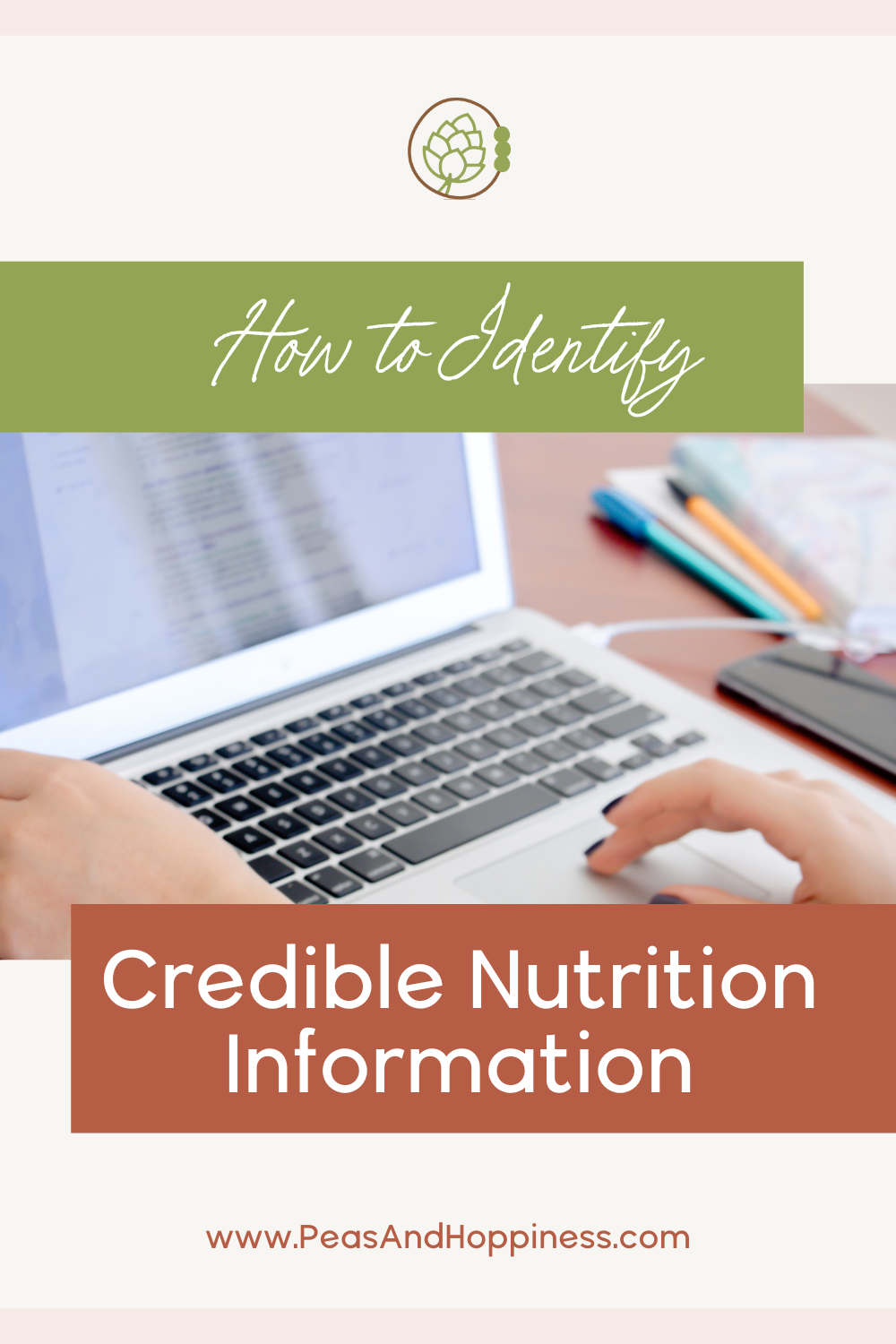 Quick, unofficial poll: how many times have you “Googled” something this week? Heck, how many times have you “Googled” something today?
Quick, unofficial poll: how many times have you “Googled” something this week? Heck, how many times have you “Googled” something today?
I use this search engine all the time. Unfortunately, its algorithm doesn’t filter between “true” and “untrue” information – that’s left up to the reader. When it comes to nutrition, there is so much “gray area” it’s sometimes hard to determine truth from fiction.
There are key pieces of information to look for when judging whether a website, magazine article, or book is a credible source. The answer to this question isn’t always obvious. Instead, the reader needs to use multiple steps to figure out the quality of a source.
This 5-step guide will help you sort through the answer to this question. I’ll walk you through these steps with the example of two online articles that discuss artificial sweeteners. This subject is ripe with misinformation, so it will be helpful to use these steps!
Website #1 comes from www.healthline.com. Website #2 comes from www.draxe.com. If you’d like, pull these up in a separate browser and follow along with me.
Step 1: Check the Website to Determine Nutrition Credibility
Nutrition websites are not created equally. Step one in the process of evaluating an article is simply to check the website at face-value.
Characteristics of a Website with Reliable Health-Related Information
Check the Top-Level Domain: Typically, more credible websites end in: -.gov, -.edu, or -.org. This alone isn’t enough to determine credibility but is a helpful first step.
Websites ending in -.gov are government websites. These are typically thoroughly vetted before information is published. The domain -.edu indicates an educational organization. Quality educational institutions also review information before it’s published.
The -.org domain generally designates the website as belonging to an organization rather than a commercial venue. These are perhaps the least reliable of the three domains as the credibility of them depends on the credibility of the organization itself.
This is not to say that -.com websites are never credible sources. There are many quality -.com and other websites which provide credible nutrition information. Simply note these websites are not as well-regulated as some other domains.
Check the Name of the Website: Is the website named for a person such as www.doctoroz.com or an organization like www.cancer.org? Does it seem inherently biased like www.naturalnews.com? Or perhaps it tells me very little like www.nutritionfacts.org.
Example of How to Assess the Credibility of a Nutrition Website
Looking at the website alone, I notice these “red flags” about each of them:
Website #1 (www.healthline.com):
- The title “healthline” reminds me of “lifeline” – is this meant to try and scare me?
- The top-level domain of -.com
Website #2 (www.draxe.com):
- The name “Dr. Axe” in the title – what kind of doctor? Is he selling something, like other famous doctors such as Dr. Oz?
- The top-level domain of -.com
These website “red flags” don’t alone indicate the quality of the information. However, if I had started with a website such as medlineplus.gov, I would know that this government website (-.gov) would be likely be citing information based on well-established nutrition guidelines. I could stop here and wouldn’t need to look further into the credibility.
Step 2: Avoid Emotion and Extremes When Looking for Credible Nutrition Information
Inflammatory statements and extreme viewpoints are used to capture your attention and heighten emotions rather than provide quality information.
When emotions like fear run high, it’s more difficult for your brain to rationally think through if something is true or not. Instead, our brains are wired to protect us. If something makes us fearful, it’s easier to be tricked into believing false information.
Example of How to Assess the Reliability and Credibility of a Nutrition Website Based on Emotional Tone of the Source
When assessing the emotional tone of a website, pay special attention to the title, the first few sentences of the article, and the photos which are included.
Notice words which are extreme (worst, best, survive), illicit fear (death, danger, tyranny), or identify a nonspecific “boogey-man” to be afraid of (Big Pharma, Big Tech, the media).
Website #1 (www.healthline.com):
- The title: “Saccharin – Is This Sweetener Good or Bad?” indicates no preference.
- First few sentences: the article starts with information about the history of artificial sweeteners.
- Photos: there aren’t any related to the article; only ads and a couple of information summaries throughout.
- Bias: The article offers both a positive and a negative view of the subject and qualifies that “some” and “others” say these things, rather than extremes like “everyone.”
- Cites sources: “According to the FDA” and links to specific research studies in the article.
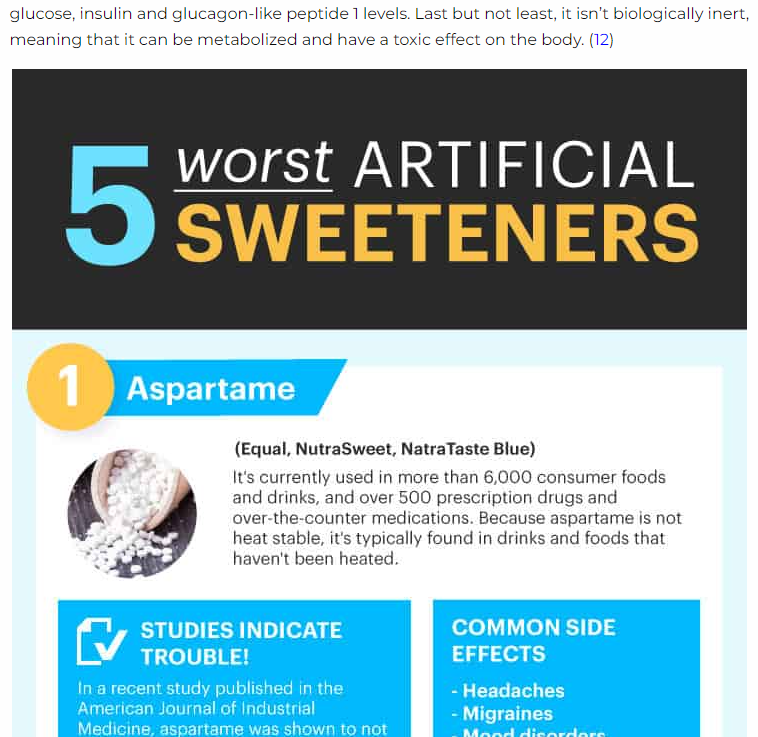
Website #2 (www.draxe.com):
- The title: “The 5 Worst Artificial Sweeteners, Plus Healthy Alternatives” uses an extreme word (Worst) and clearly has a bias against artificial sweeteners.
- First few sentences: the article starts by using the extreme word “immediately” and the emotional word “dangerous.” They reference a vague source, “scientific research.”
- Photos: there are several fear-inducing images of “dangerous” ingredients being fed to children and in everyday household items.
- Bias: there is no nuance or alternative views offered, rather a blanket statement that “scientific research shows” (sounds definitive) is associated with “many dangerous side effect” (vague and scary).
- Cites sources: there are many sources linked in the article, but this is a bit misleading. Some of the source numbers are different (1, 4) but link to the same article – this makes it look like the author has used more sources than he has. Many sources link to other articles written on the same website (circular citation). The article boldly asserts that Acesulfame K might cause autism, but the research article cited for this claim states, “Whether any of these play a causal role requires further study.”
Step 3: Beware of Bias when Evaluating Credibility of Nutrition Sources
Bias can come in many forms when evaluating a source for credibility. To be clear, everyone everywhere has some form of bias. To be human is to be biased. We are influenced by our upbringing, our beliefs, values, and by the information we already believe to be true.
One of the main sources of bias is money: is someone profiting from the information provided on this website?
A few of the most common ways that people make money with nutrition information are:
- Paid diets or diet plans
- Selling supplements, such as vitamins or protein shakes
- Book sales
- Paid consultations
- Endorsements (big companies like Monsanto or specific product endorsements like a supplement company)
How to Identify Bias in Nutrition Sources
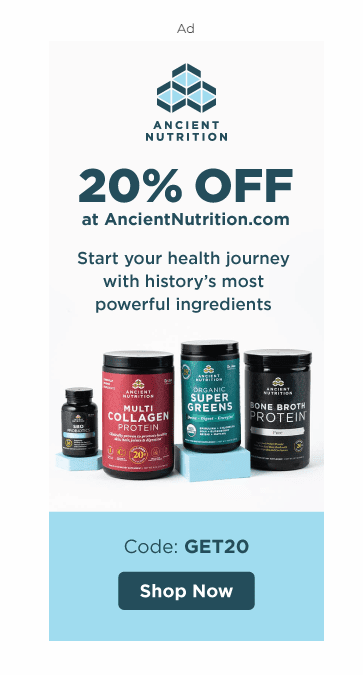
Let’s look at potential sources of bias on each of the example websites: who writes the articles, if and how they’re reviewed, and if any money is exchanging hands.
Website #1 (www.healthline.com):
- Products for sale: there are Google ads on the website, but nothing for sale directly from the site.
- Paid endorsements: There is some sponsored content on the website, which is disclosed up front.
- Advertisements: the advertisements on the site appear to be unrelated to any specific product endorsements. They have an advertising policy listed on their website outlining what ads are shown.
Website #2 (www.draxe.com):
- Products for sale: it doesn’t appear that Dr. Axe is selling anything directly from his website.
- Paid endorsements: the website provides an affiliate disclosure indicating they earn a commission on some products.
- Advertisements: all ads on the website appear to be for a company called “Ancient Nutrition” which is a supplement company that Dr. Axe co-founded.
A website that is biased is not necessarily wrong. Many small businesses use their website to promote their services or products in addition to providing quality information. However, it’s important to keep in mind how this might affect the quality of the information.

Step 4: Find the Source of Nutrition Articles to Determine Credibility (Credentials, Please!)
Articles written by experts in the field are usually more likely to be accurate. Experts have the training to find their own credible sources and can help explain nuance of a topic.
A few examples of credible health-related sources include:
- Experts in the field (see below)
- Well-established organizations, such as Mayo Clinic or the National Institutes of Health
- National Organizations, such as the Academy of Nutrition and Dietetics or the National Cancer Institute
Experts in their field are best identified by their credentials. Sometimes figuring out which credentials are valid can be tricky, though.
For example, in the world of nutrition, the term “dietitian” is a protected credential. A registered dietitian must have a master’s degree from an accredited university, have completed an internship, and passed a national registration exam.
On the other hand, in most states anyone can call themselves a “nutritionist” without any formal education, training, or licensure. Some nutritionists are very knowledgeable while others practice based on their experience rather than data.
Use these guidelines when evaluating health-related credentials:
- Look for a license: most states license their professionals, but unfortunately dietitians are not licensed in every state
- Look for registration by a national organization: good credentials should have specific education requirements
- Check the university or college: is this a credible, freestanding institution?
- Ask the expert: if you’re meeting the expert in person or online, ask them about their qualifications!
How to Evaluate Author Credentials in Credible Nutrition Sources
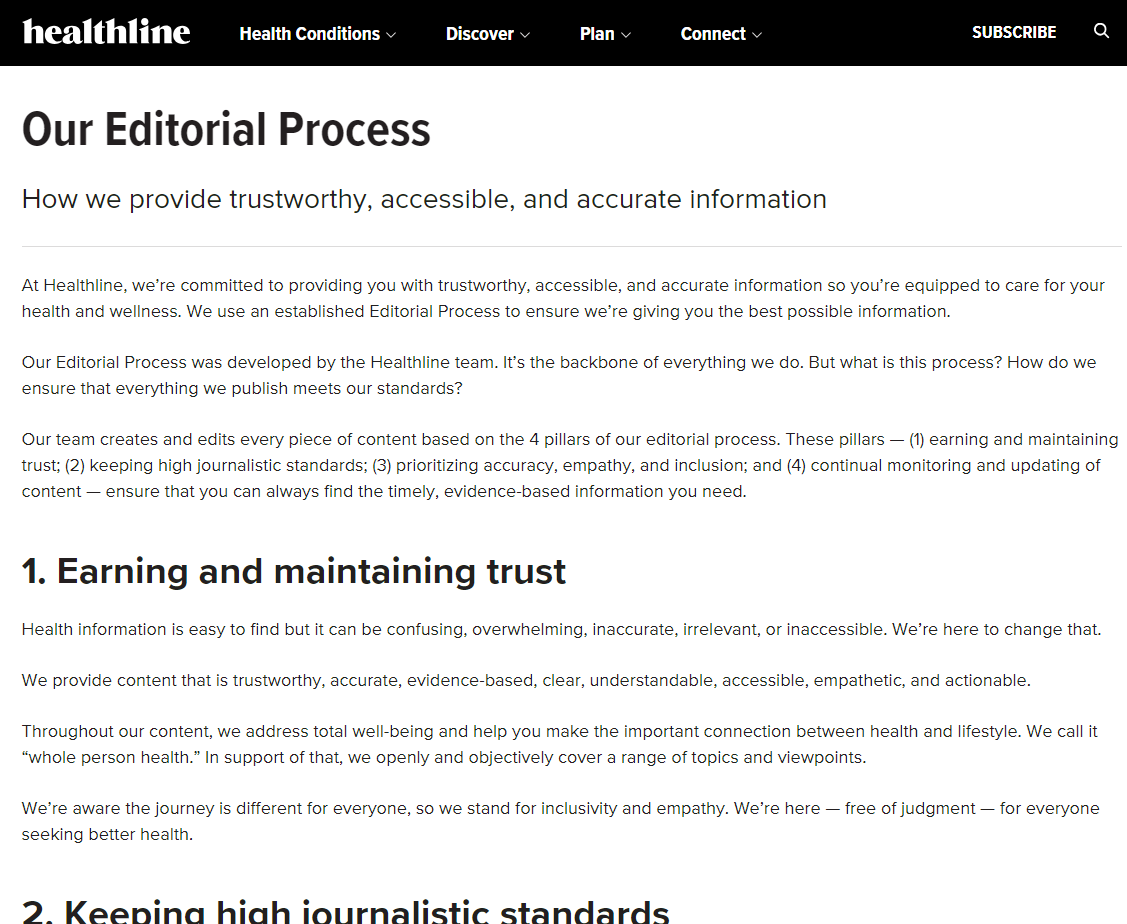
To check the quality of the authors writing information on each website, let’s look at the article author, website author(s), and the review process for editing the articles.
Because of the inherent bias we all have, the writing and review process is very important. Allowing other people to review the information and correct any misinformation ensures the least amount of bias possible.
Website #1 (www.healthline.com):
- Article author: Mary Jane Brown, PhD, RD (UK). I had to do some digging to learn more about her; apparently, she’s changed her name to Mary Jane McCluggage (marriage, I’m guessing?). She has a bachelor’s degree in human nutrition from a college in Northern Ireland and a postgraduate diploma in dietetics. Her PhD was in diet, exercise, and weight management in pregnancy.
- Website author(s): Articles on the website are written by a team of authors. The website lists a description of their degree, the university they attended, as well as a brief explanation of their credentials.
- Review process: the history of updates is listed at the bottom of the page, including who edited the article. In addition, the website Healthline.com has an entire page explaining their process of how articles are written and reviewed.
Website #2 (www.draxe.com):
- Article author: Axe, DC, DNM, CNS. His “about” page lists him as a clinical nutritionist but doesn’t describe any of his educational history. He’s written many books and is a frequent guest on the “Dr. Oz Show.”
- Website author(s): there is a long list of contributors and a Medical Review Board listed on the website. Many of the reviewers and writers do not have an educational background in nutrition.
- Review process: The process of how individual articles are reviewed is not listed.
To learn more about the difference between a Registered Dietitian or Registered Dietitian Nutritionist and a nutritionist, visit The Academy of Nutrition and Dietetics.

Step 5: Cross-Check the Information to Ensure a Credible Nutrition Source
Quality nutrition information is mostly the same across reputable organizations. Generally speaking, the recommendations from the American Cancer Society, the American Heart Association, the World Health Organization, and the US Dietary Guidelines are all fairly similar.
A single scientific study which concludes something different than the current guidelines is not enough evidence to overturn decades of research. If you encounter an article that makes this claim, beware.
The science of nutrition is tricky. From genetics to environment to social interactions, there are so many things that affect a person’s health. Because of this, conclusions about nutrition take a long time to figure out.
How to Cross-Check Information to Ensure a Credible Nutrition Source
To complete the final step in determining the credibility of a website, let’s cross-check the information. The first question is to ask if the article is in line with other credible nutrition sources? The second is to identify any “gotcha!” statements. “Gotcha!” statements are used to illicit emotion rather than provide credible information.
Website #1 (www.healthline.com):
- Other credible nutrition sources: the article specifically mentions the World Health Organization, the European Food Safety Authority, and the Food and Drug Administration as organizations which come to the same conclusion as this author.
- Gotcha! Statements: the article mentions counter points of view, such as research linking some types of cancer with artificial sweeteners. The author explains this research in a non-emotional way and comes to the same conclusion as other major health and safety organizations.
Website #2 (www.draxe.com):
- Other credible nutrition sources: the article references a couple of individual research studies and cross-references WebMD.com. Otherwise the information doesn’t align with any major health organization.
- Gotcha! Statements: the article uses misleading science to try and show that some artificial sweeteners are dangerous. For example, it states that because chorine is in sucralose this makes it dangerous. This statement simply doesn’t make sense. For example, chlorine is one of two molecules (sodium and chlorine) that make up Sodium Chloride, or table salt.
How to Evaluate Nutrition Sources Online to Determine Credibility

It’s important to use all your tools when evaluating a nutrition source. No one step is a bulls-eye for determining whether or not you’re looking at a credible source.
Wading through all of this to find the truth can be tough. To best understand nutrition information and especially how it applies to you as an individual, I highly recommend to find a registered dietitian to talk with.
As an expert in the field, it’s my job as a dietitian to help my clients understand the current research on different nutrition topics. I also help my clients figure out how the recommendations apply to them specifically.
Your health is unique, and so should be your nutrition recommendations. I never give one-size-fits-all diet advice. Instead, I complete a comprehensive assessment for each of my clients before giving any recommendations.
Learn more about 1-1 nutrition coaching or take a look at one of these related nutrition articles to continue learning:
- Why Nutrition Seems So Confusing
- Should I Take a Nutrition Supplement?
- 5 Reasons Not to Subscribe to a Meal Kit Delivery Service
Happy credible nutrition information finding,
Dietitian Ann Kent, MS, RD, from Peas and Hoppiness
Originally published: 12/14/2016 | Updated: 6/21/23
Personal Nutrition Recommendations
Ann practices an Intuitive Eating Approach in her 1-1 nutrition coaching. You’ll learn how to listen to and trusty your body while learning how to fuel it the way it needs.
Schedule a discovery call to get started.
“Ann helped make eating so much less stressful for me after my gestational diabetes diagnosis. I feel better physically now that I am giving my body what it needs to function, as well as mentally after reframing the new diet in a healthy way.”
– Michela, 1-1 Nutrition Coaching Client
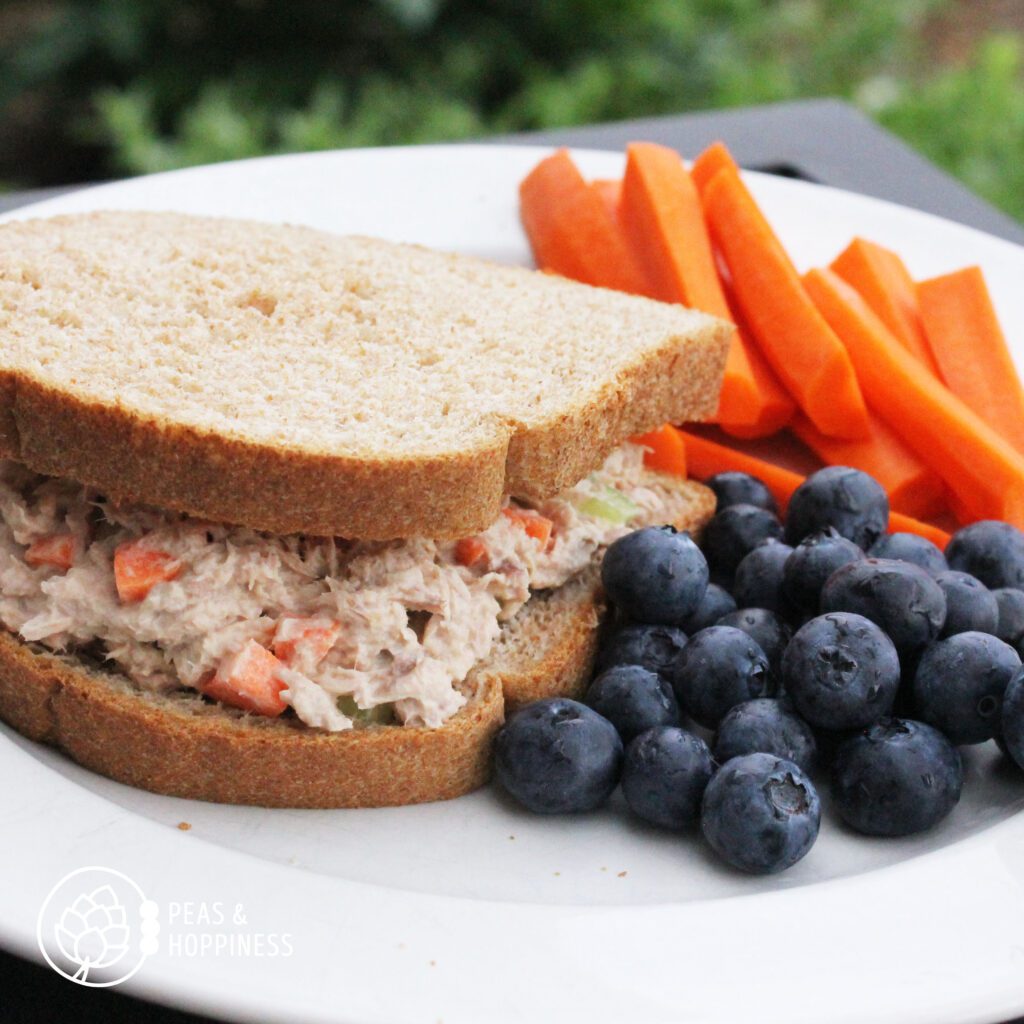
Take the Guesswork Out of Mealtime
Bring your family together around the table with our healthy and delicious meal planning service, the Peas & Hoppy Meal Guides.
Weekly menus are customizable, include your shopping list, and feature plant-forward, seasonal recipes so you can use produce from your local farmers!
“Before the Meal Guides I was struggling with fear of using some foods… it made me overly restrictive. The Meal Guides help with balancing out my meals; not serving too much food, and being a more adventurous cook.”
-Pat Harry, Member of the Peas & Hoppy Meal Guides

3 thoughts on “How to Identify Credible Nutrition Information Online”
Thanks!
Great Article! I am a RD as well and I was just googling how to find credible nutrition information just to see what the average consumer would see on the first page of google. I like how you walked through two different examples with the reader. I would add another thing I do is verify credentials. It took me maybe two minutes max to be able to determine Dr. Axe was a quack. I read his bio page, learned which state he practiced in and then looked up his registration and licensure from that state. Turns out he is a chiropractic physician and his license to practice expired in 2013! Now when I checked last was in 2017 so maybe its updated since then and I didn’t check every state. But no formal nutrition licensure every in same state was suspect…
Thank you for your comment, Melanie! And great tip about the credentials. It’s so easy to put a bunch of "alphabet soup" behind your name, but it only takes a little bit of digging to figure out whether or not these are legitimate. Thank you for sharing!